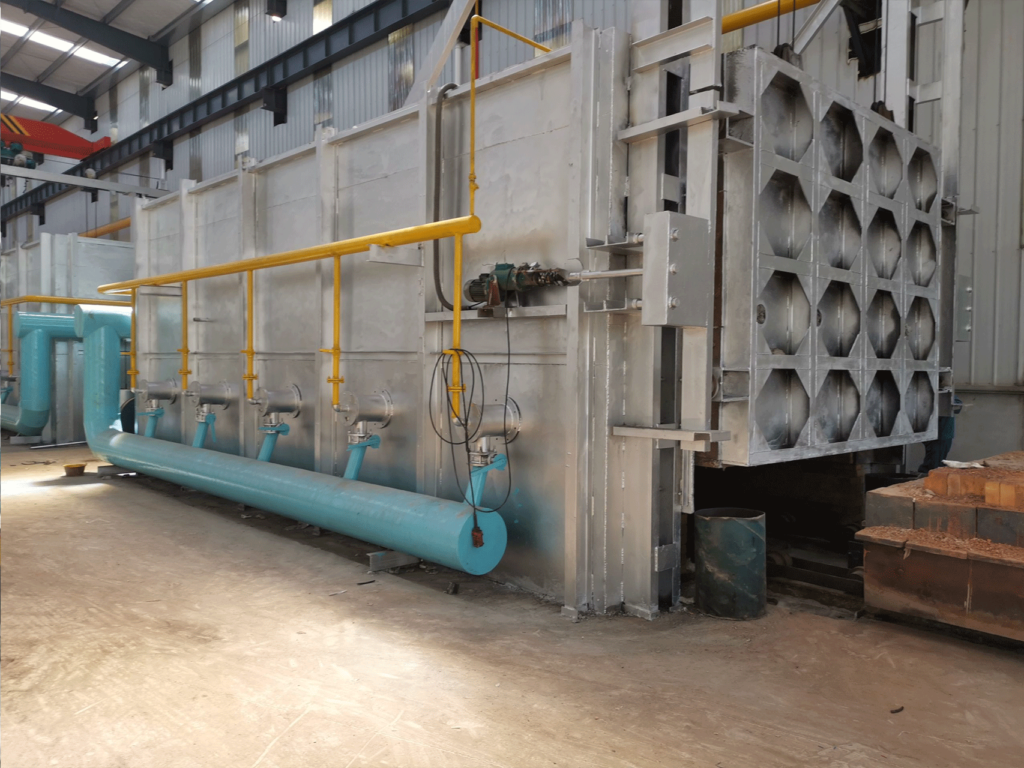In the realm of industrial processes, heat treatment is a critical method used to improve the mechanical properties of materials. Among various heat treatment techniques, annealing is particularly significant as it involves heating materials to specific temperatures and then gradually cooling them. To optimize the annealing process and achieve consistent results while minimizing waste, several best practices and tips come into play. In this blog, we delve into the world of heat treatment annealing furnaces, highlighting the best practices to follow, and introducing a leading manufacturer, JiangSu YiNuo Thermal Energy Technology Co., Ltd.
Understanding Heat Treatment Annealing Furnaces
1. An Overview of Annealing Furnaces
Annealing furnaces are specialized equipment designed to heat materials to a predetermined temperature, hold them at that temperature for a specific time, and then allow controlled cooling. The primary objective of annealing is to reduce internal stresses and create a more uniform microstructure, which ultimately improves the material’s mechanical properties. These furnaces are equipped with advanced features to ensure precise temperature control, uniform heating, and safety.
2. Types of Annealing Furnaces
There are several types of heat treatment annealing furnaces, each tailored to suit specific applications. Continuous annealing furnaces are commonly used for continuous processes in industries like steel manufacturing, while batch annealing furnaces are ideal for smaller batches and versatile applications. Additionally, protective gas annealing furnaces are used to prevent oxidation during the heating process, crucial for materials sensitive to air exposure.

Understanding the Annealing Process:
To embark on a journey of mastering heat treatment annealing, it is crucial to comprehend the annealing process in detail. Annealing aims to reduce hardness and increase ductility, resulting in improved machinability and minimized internal stresses. The process involves three stages: heating the material to a specific temperature, soaking it at that temperature for a set period, and then slowly cooling it to room temperature. Understanding the material’s composition, heating rate, and cooling rate are fundamental factors in achieving desired results.
Selecting the Right Annealing Furnace:
The first step towards successful annealing is choosing the appropriate annealing furnace. A wide array of annealing furnaces is available in the market, but not all are suitable for every material or application. Selecting the right furnace depends on factors such as material type, size, and batch quantity. Leading manufacturers like JiangSu YiNuo Thermal Energy Technology Co., Ltd., provide customized solutions, ensuring that the furnace meets specific heat treatment requirements.
Achieving Temperature Uniformity:
Temperature uniformity is paramount in annealing processes. Non-uniform heating can lead to inconsistent results and material deformities. Furnaces equipped with advanced technology, such as multiple heating elements and precise temperature controls, help maintain temperature uniformity throughout the annealing process. YiNuo’s annealing furnaces are designed with cutting-edge temperature control mechanisms, ensuring a homogenous and controlled heating environment.
Optimal Soaking Time:
The soaking time during the annealing process significantly impacts the material’s microstructure and properties. Too short a soaking time may not yield the desired effects, while excessive soaking could lead to grain growth or other undesired changes. Striking the right balance requires careful consideration of material specifications, furnace type, and the desired final properties. Experienced heat treatment professionals at YiNuo can provide guidance on determining the optimal soaking time for different materials.
Precise Cooling Rates:
The cooling rate plays a pivotal role in the annealing process. It influences the material’s hardness, structure, and overall performance. Slow cooling allows for controlled recrystallization, while rapid cooling may lead to hardness variations and internal stress. Modern annealing furnaces often feature programmable cooling options, enabling users to tailor cooling rates as per material requirements.
Regular Maintenance and Calibration:
To ensure the consistent performance of heat treatment annealing furnaces, regular maintenance, and calibration are imperative. Over time, furnace components may wear out or lose accuracy, affecting the quality of the annealing process. Manufacturers like YiNuo offer comprehensive maintenance services and calibration checks to ensure the furnace operates at its peak efficiency.
Temperature Control and Material-Specific Considerations
1. Temperature Control
Accurate temperature control is vital to achieve the desired material properties during annealing. Modern annealing furnaces are equipped with sophisticated temperature control systems that ensure precise heating and cooling rates. These systems help avoid overheating or underheating, resulting in consistent and reliable outcomes.
2. Material-Specific Considerations
Different materials require specific annealing processes to achieve optimal results. For instance, steel requires various annealing cycles depending on its carbon content and alloy composition. Similarly, non-ferrous metals like copper and aluminum necessitate different annealing treatments. A skilled operator and a well-designed furnace with customizable parameters are essential to cater to diverse material-specific requirements.
JiangSu YiNuo Thermal Energy Technology Co., Ltd.: Experts in Annealing Furnace Manufacturing
1. Cutting-Edge Technology
JiangSu YiNuo Thermal Energy Technology Co., Ltd. has garnered a reputation for producing cutting-edge annealing furnaces that meet the evolving demands of industries. Their furnaces are equipped with the latest technology for precise temperature control and uniform heating, ensuring the highest level of material performance.
2. Custom Solutions
Recognizing that every industry has unique annealing needs, JiangSu YiNuo offers custom solutions to their clients. They collaborate closely with their customers to understand their requirements and develop tailor-made annealing furnace systems that maximize efficiency and productivity.
3. Quality Assurance
JiangSu YiNuo places great emphasis on quality control and safety standards. Their annealing furnaces undergo rigorous testing to meet international quality standards and regulatory requirements. This commitment to quality ensures that their customers receive reliable and high-performance equipment.
Conclusion:
Mastering the art of heat treatment annealing furnaces in industrial settings demands adherence to best practices and attention to detail. By comprehending the annealing process, selecting the right furnace, and implementing precise temperature controls and cooling rates, consistent and reliable results can be achieved. JiangSu YiNuo Thermal Energy Technology Co., Ltd., as a renowned manufacturer, offers customized solutions for annealing furnaces, empowering industries to optimize their heat treatment processes and minimize waste while delivering exceptional material properties. Embracing these best practices will undoubtedly propel heat treatment annealing processes to new heights of efficiency and productivity.












